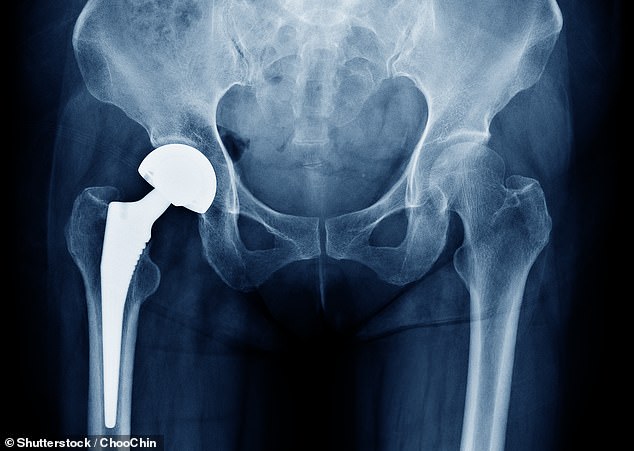[ad_1]
Thousands of Britons who have had hip replacements have been warned that there is a risk that their implant could malfunction.
An investigation by the Medicines and Healthcare products Regulatory Agency (MHRA) concluded that 2,000 people who had the common joint op between 2009 and January 2025 could be affected, with a small percentage of these people having a one in 100 chance of fracture.
The health watchdog has ordered local trusts and hospitals to invite patients fitted with a Profemur cobalt chrome modular neck hip replacement for a clinical review.
Patients will be invited in order of risk of malfunction, which depends on the specific model of device which was implanted.
High risk patients will have been fitted with a—since recalled—CoCr modular neck product with the code PHAC1254.
Moderate risk patients have either been implanted with a CoCr neck on either a Profemur or Ancafit titanium alloy or Profemur Xm CoCr stem.
But this group also includes patients whose implant material combinations are unknown.
Moderate risk patients will be seen as soon as possible, and low risk patients will only be seen if they have symptoms such as pain, instability or loss of function.

An investigation has revealed certain hip replacement patients could be at risk of a fracture
Lower risk patients have been implanted with a titanium alloy neck on a Profemur Xm CoCr stem.
The MHRA have determined there are 204 high risk patients, 1188 medium risk patients and 833 low risk patients, by using data from the UK National Joint Registry data.
Everyone with a Profemur cobalt chrome modular neck hip replacement will be informed of the clinical review process, regardless of their risk grouping.
The health body also recommended that in the case of evidence of malfunction, that doctors perform a whole blood screening to test for levels of cobalt and chromium, an MRI scan or ultrasound.
If results come back abnormal or a patient’s condition deteriorates, revision surgery should be considered.
In October 2024, the MHRA began investigating safety and performance concerns about dual taper/modular neck hip stems particularly those with cobalt chrome alloy.
While the government says concerns were raised about modular neck devices generally, they focused on the Profemur modular hip system—which is no longer used by the NHS—specifically.
This was because of ‘its market share in the UK and supporting data indicating potential metal wear-related issues’, they said in a media alert released today.
The MHRA observed ‘markedly higher rates’ of adverse outcomes than would be expected from alternative devices, like hip stems with a fixed-neck design.
They identified three risks associated with the devices—wear and corrosion, implant fractures, and need for revision surgery.
Metal wear and tear complaints were reported by six in 1,000 patients, which compares to fewer than 1 in 10,000 for alternatives from the same manufacturer.
Meanwhile the manufacturer’s own data shows risk of device fracture to be approximately 2 in 10,00.
But patients implanted with components that were recalled by the manufacturer in 2015 may have a higher risk of one in 100.
And long-term data shows those needing revision surgery 10 years later was two-fold, up to nine in 100 patients compared to five in 100 for other designs.
The statement added: ‘MHRA’s investigation also found that specific aspects of the manufacturer’s Instructions for Use (IFU) are inappropriate for safe device use.
‘The IFU advises users to consider cobalt chrome modular necks for patients over 230 lbs (104 kg) and those with high activity levels, despite these factors being known to increase wear and corrosion at the neck junction, thereby potentially increasing the risk of the adverse incidents described above.
‘The manufacturer has discontinued the supply of Profemur cobalt chrome and titanium modular neck components to the UK market.’
It comes as waiting times for routine hospital treatments like hip replacement surgeries are at all all-time high.
More than 7.37million treatments—relating to 6.23million patients— are now in the queue for ops like hip replacements, according to latest figures.
This includes over 190,000 people stuck in limbo for at least a year, often in pain.
[ad_2]
This article was originally published by a www.dailymail.co.uk . Read the Original article here. .

